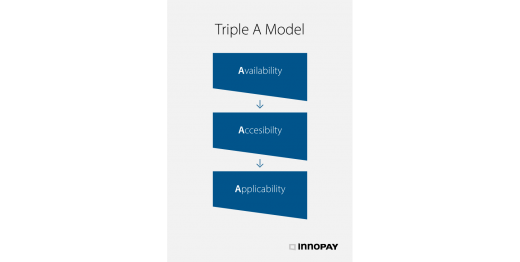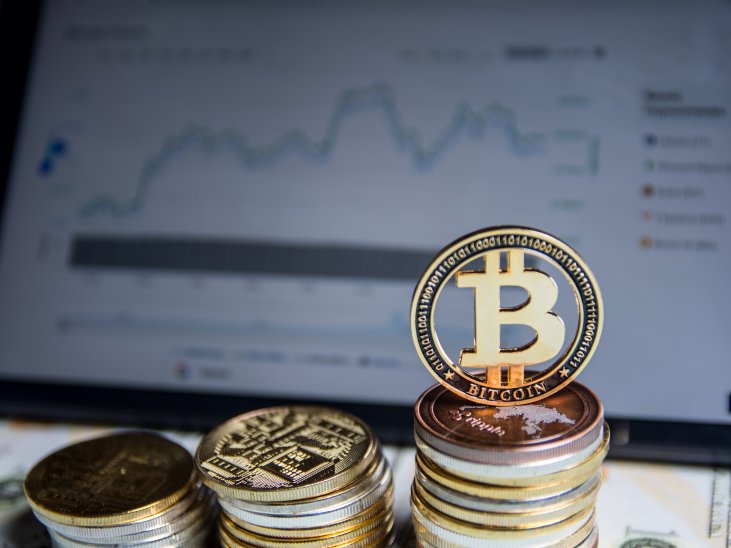Dealing with data in the context of COVID-19 - A call for data sovereignty

These are unprecedented times, and the current coronavirus (COVID-19) pandemic raises some essential questions in the data debate. Governments worldwide are faced with the challenge of gathering the right data so they can track cases and fight the spread of the coronavirus. Their solutions generally lie in one of two directions*: totalitarian surveillance or citizen empowerment. From our perspective, the solution is crystal clear. At INNOPAY, we are strong advocates of enabling organisations and individuals to manage access to their data in effective and empowering ways. This is urgently needed to build the necessary trust so that data owners will provide consent. Data-sharing based on consent is vital to keep the digital transactions ecosystem well-oiled… and it is also crucial in the fight against COVID-19.
Data as the new fabric of society
Data is rapidly becoming the new fabric of society, and we still need to explore all of its facets. Data – including personal data, access and authorisation rights, obligations, attention and reputation – represents value and forms the basis of new business models. This is part of what we call the ‘transactional phase’ of the internet, which has as-yet-untapped value potential. Now, the challenge is to find ways to better understand this new currency and its impact as the basis for making the right decisions – both as individuals and as organisations.
When talking about data, I sometimes feel we are like the Inuit; they have dozens of words for ‘snow’. We need more words to clarify what we mean: a new data dictionary. So, let’s introduce some new terminology.
Data? It’s all about access
Everybody seems to be talking about data – from the ‘cool stuff’ you can do with data (applications such as blockchain, artificial intelligence (AI) and ‘big data’), to data itself: data quality, data sharing, data leaks and data security. But it strikes me that there’s a gaping hole in all these conversations: access to data. At INNOPAY we believe that data availability and data access are preconditions for any data application, and we have expressed this in our Triple A Model (See Figure 1). As we increasingly move towards the transactional era, this apparent collective lack of interest in managing data access is starting to cause serious problems.

Most people haven’t tended to care about data access and have so far been sharing their data willingly. Many regard it as ‘a price you have to pay’; if you want to stay connected through social media and want the convenience of ordering online, you simply go ahead and click on “I agree”. However, people are becoming increasingly aware of the fact that they subsequently have no control over the data they provide and that ultimately ‘they are the product’ themselves.
The realisation is slowly dawning that data is in the hands of a few. Tech giants such as Facebook, Google, Amazon and so on are using people’s data for their own benefit, yet giving nothing (or very little) in return. Besides that, this leaves large groups of people open to undesired and often imperceptible influencing and numerous privacy issues. Video communication platform Zoom suffered a high-profile privacy breach just last week, for example. So, people are slowly beginning to question the situation: ‘Is this the way I want my data to be dealt with? Isn’t it my data? And shouldn’t I benefit from it?’ But up until now, the only choice they have is to take negative action, such as deciding to leave Facebook or refusing to share their data... and no longer being able to make use of certain services as a result.
Data sovereignty offers an alternative
In times of crisis, such as the current fight against COVID-19, a common governmental reflex is to think in terms of regulation and force. And citizens tend to agree to whatever is necessary in order to contain the situation. A similar thing happened right after 9/11, for example, when most people accepted that there was a legitimate need for the US federal government to create a veneer of legality for a flagrantly illegal dragnet telephony data mass surveillance programme under the US Patriot Act. The danger lies in the fact that today’s ‘crisis’ measures are tomorrow’s ‘normal’. Luckily there is an alternative. That alternative is based on a positive approach; it is based on restoring trust by giving people the tools to manage their own data. Let me give you an example of how important it is to organise trust and make data sovereignty part of the design principles of any data application.
Coronavirus apps
The OLVG Hospital in the Netherlands has taken the initiative of developing a free and easy-to-use app so that people can input and monitor their data themselves. It provides complete transparency and openness about how the data provided will be used. This builds the necessary trust to encourage people to submit their data. The hospital then monitors that data and calls individuals whenever it is considered necessary.
The overwhelming adoption of the app and the quality of the data entered is proof that this approach is successful. People’s reactions on social media telling others about the caring personal calls they have received, are further evidence that trust boosts adoption. Ultimately, these kinds of apps could prove to be very useful tools (not least thanks to the higher-quality data!) in the fight against coronavirus, and perhaps even more useful than mass surveillance by the tracking and tracing of smartphones.
The foundation of guaranteeing access to data: trust, trust and trust
Governments around the world should not fight the pandemic at the expense of basic human rights – at the expense of citizens’ control over their own data. That’s why we welcome the European Commission’s Recommendation of 9 April on a common Union toolbox for the use of technology and data to combat and exit from the COVID-19 crisis. Policymakers should choose the right direction and push for data sovereignty as the central design principle in all processes and applications using data. Similarly, organisations should enable their customers to manage their own data in terms of who may access it and under what conditions. They can do so by offering them transparency and by providing them with the necessary tools, such as dashboards to control the use of their data. This will build trust, and this trust is the essential foundation for encouraging everyone to provide consent so that their data can be shared seamlessly. And seamless data sharing is vital to keep the digital transactions ecosystem well-oiled, and vital in the fight against COVID-19.
---
* Financial Times, Harari, 2020 https://www.ft.com/content/19d90308-6858-11ea-a3c9-1fe6fedcca75





